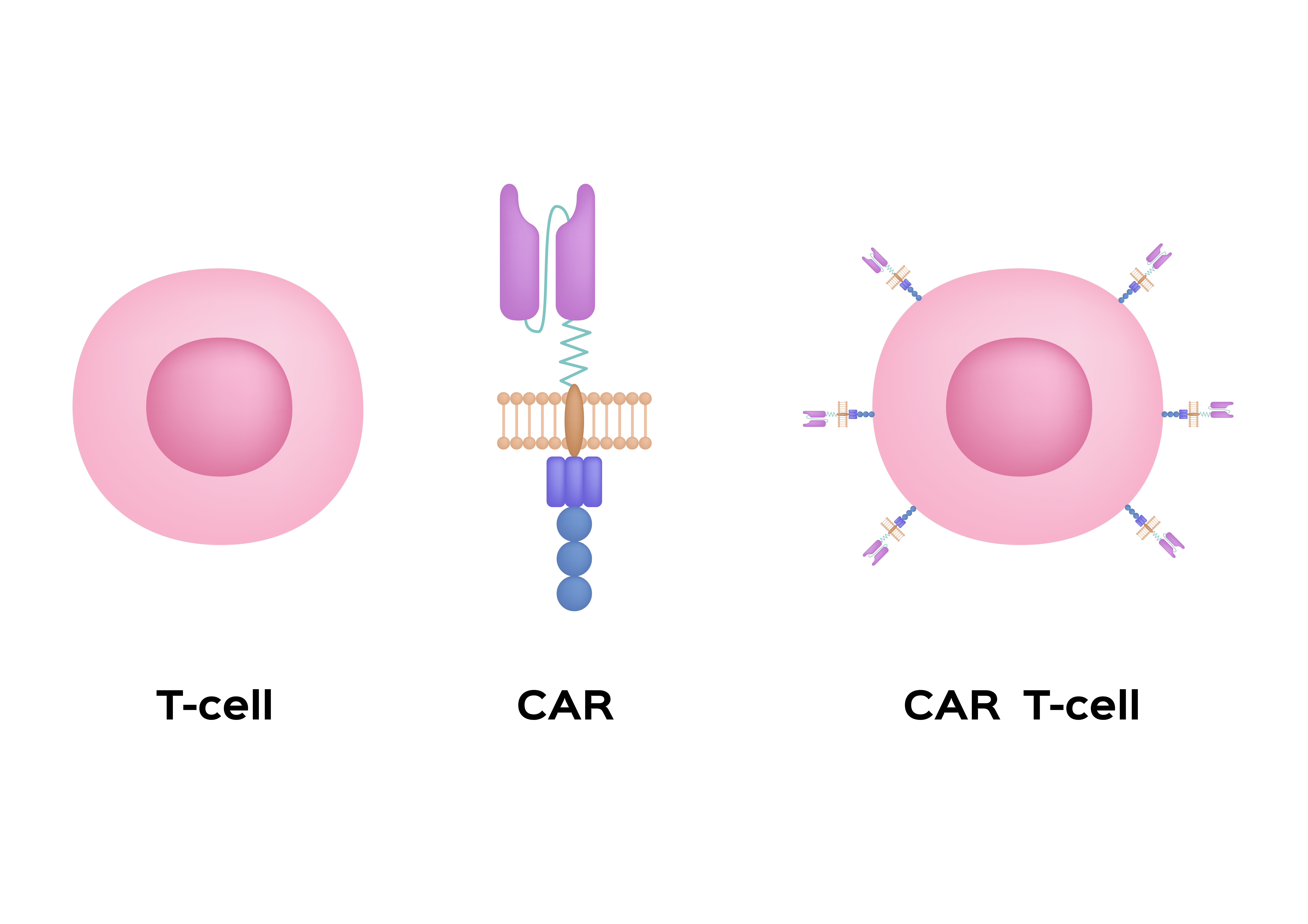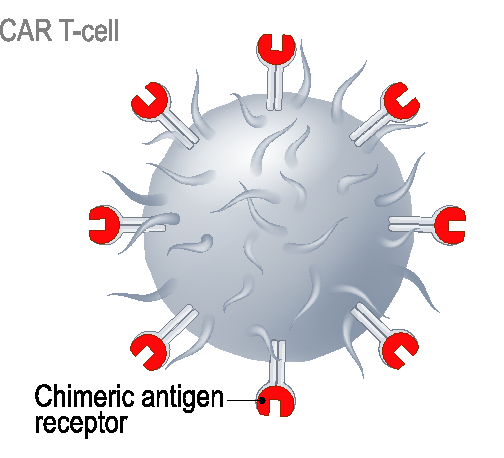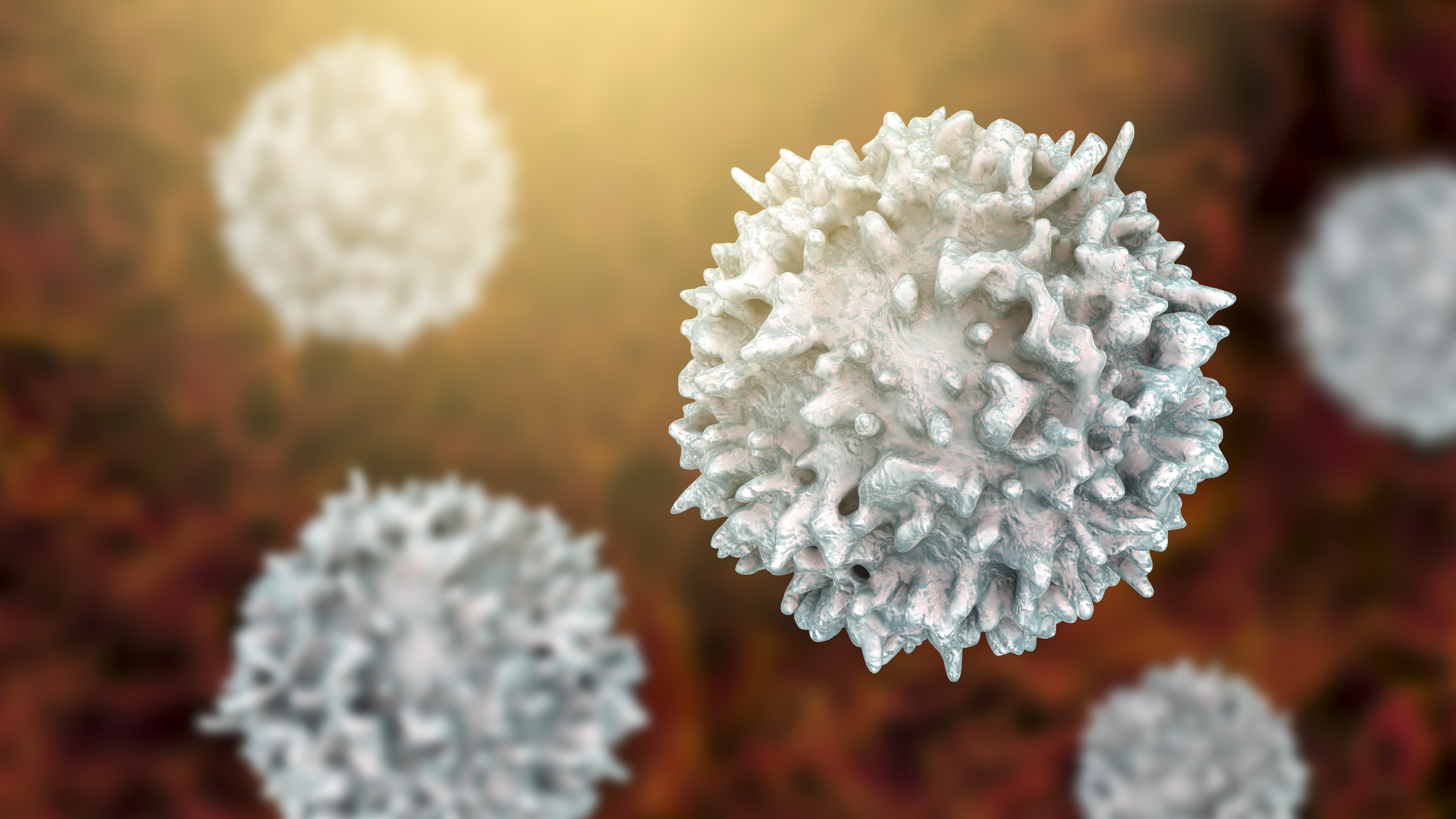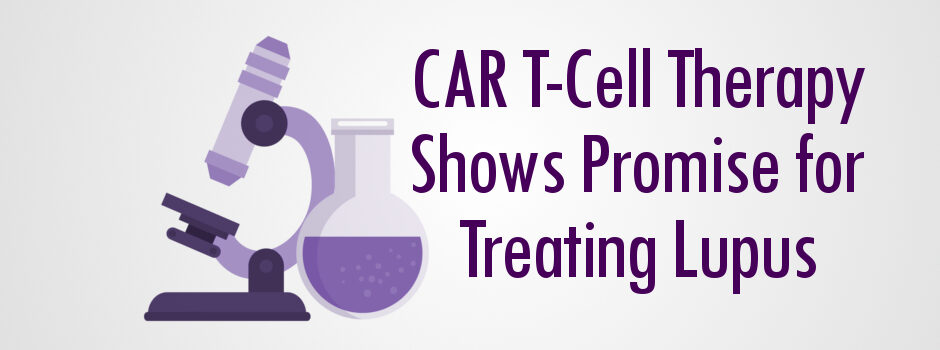
CAR T-Cell Therapy Shows Promise for Treating Lupus
 September 19th, 2022
September 19th, 2022 Nakita Cambow
Nakita Cambow Latest News
Latest News 0 Comments
0 Comments
 Results from a recent clinical trial have shown that CAR T-cell therapy, a type of cell-based gene therapy used in cancer treatment, has shown very promising results in the treatment lupus.
Results from a recent clinical trial have shown that CAR T-cell therapy, a type of cell-based gene therapy used in cancer treatment, has shown very promising results in the treatment lupus.
The research paper, published in Nature Medicine, describes five patients with systemic lupus erythematosus (SLE) who had not responded to several immunosuppressive drug treatments being enrolled into a clinical trial for the CAR T-cell treatment programme. All five patients experienced remission of their disease and have been able to withdraw from lupus medication for between three and 17 months.
What is CAR T-cell therapy?
 Chimeric antigen receptor (CAR) T-cell therapy is an approach which has proved successful at combating certain cancers since it was first used in a leukaemia patient in 2015.
Chimeric antigen receptor (CAR) T-cell therapy is an approach which has proved successful at combating certain cancers since it was first used in a leukaemia patient in 2015.
CAR T-cell therapy involves collecting the patient’s T-cells – a key component of the immune system – and modifying them so that they attack new targets when infused back into the body.
In this clinical trial, doctors took T-cells from the lupus patients and modified them so that, on re-infusion, they attacked the patients’ B-cells. In lupus, B-cells produce autoantibodies, which instead of defending the body against invading pathogens, attack healthy tissues instead.
How long will the effects of the treatment last?
 According to the researchers, the therapy effectively wiped out the “bad” B-cells and dramatically improved the patients’ condition. All five study participants had lupus affecting multiple organs, but after the therapy severe symptoms including arthritis, fatigue, fibrosis of the heart valves, and lung inflammation all cleared up.
According to the researchers, the therapy effectively wiped out the “bad” B-cells and dramatically improved the patients’ condition. All five study participants had lupus affecting multiple organs, but after the therapy severe symptoms including arthritis, fatigue, fibrosis of the heart valves, and lung inflammation all cleared up.
Blood tests showed that it took approximately four months for their B-cells to recover after the treatment. However, they no longer produced “bad” antibodies and the patients remained disease-free. Writing in the journal, the researchers speculated that the therapy may have led to a “rebooting of the immune system”.
The patients were monitored within a range of five to 17 months following the treatment. No relapse of SLE was observed despite the reappearance of the B-cells.
At this time, it is uncertain how long the effect of CAR T-cell therapy may last. Longer-term follow-up of a larger number of patients treated with the therapy will be needed.
Are there any risks and/or side-effects from this treatment?
 As with any treatment targeting the immune system, doctors want to ensure that the therapy does not have a negative impairment and leave the patient at greater risk of infection.
As with any treatment targeting the immune system, doctors want to ensure that the therapy does not have a negative impairment and leave the patient at greater risk of infection.
To test this, the researchers assessed the patients’ responses to multiple vaccines, including measles, rubella, mumps, hepatitis B, tetanus and diphtheria, before and after the therapy. The patients’ immune responses were not substantially different after the treatment, suggesting that it primarily targeted the dysfunctional autoantibody-making cells.
CAR T-cell therapy has been very effective against some types of hard-to-treat cancers but it can also sometimes cause serious side effects. As a result it needs to be given in a medical centre that is specially trained in its use and patients need to be watched closely for several weeks after getting the CAR T-cells.
Some reported side effects include;
- Cytokine release syndrome (CRS)
- Immune effector cell-associated neurotoxicity syndrome (ICANS)
- Allergic reactions during the infusion
- Abnormal levels of minerals in the blood
- A weakened immune system
- Low blood cell counts
In this study, some patients experienced a fever lasting up to three days. None of the patients developed (ICANS), leading the researchers to believe this toxicity of CAR T-cell therapy may be less pronounced in patients with SLE. Also, no infections occurred in the short-term follow-up.
What is the next step for this treatment?
This trial only included a small number of lupus patients. Longer follow-up trials with larger numbers of patients will be necessary to confirm that CAR T-cell therapy is safe and produces a sustained absence of lupus disease activity and reduces inflammation.
Will this treatment work for all people with lupus?
The researchers reported that, due to the small number of patients involved in this trial, the ideal patient profile for CAR T-cell treatment in SLE has not yet been established. Not every patient may respond. It remains uncertain whether there are specific patient characteristics that would influence the response.
What is the reaction to this study?
Dr Chris Wincup, Consultant Rheumatologist at King’s College London:
“This study represents a major breakthrough! I remember when I first saw some of the initial results and was interested as the team were using this cutting-edge research. Like with cyclophosphamide and rituximab, this is another drug that has been borrowed from the treatment of cancer and has shown promise in treating lupus. I think one of the most exciting things is that this treatment was given to patients who were very unwell and that had tried a lot of other treatment. I’m particularly excited to see that they were able to come off all treatment including steroids! This gives me hope that we may have new options available for lupus in the future, and CAR T-cell therapy may be an option in the most severe cases.”
Paul Howard, Chief Executive of LUPUS UK:
“These results are incredibly exciting! It is uncommon for people with lupus to experience a remission where they can withdraw from treatment and it happened for all the participants in this trial. Importantly, this treatment was able to help people who had not responded adequately to other lupus medications. Whilst this is only a small study, I am very hopeful for a leap forward with lupus treatments.”
LUPUS UK will share any news and developments about this and other treatments as we hear it. Make sure you don’t miss anything by joining as a Member or subscribing to our newsletter.



 ©2024 LUPUS UK (Registered charity no. 1200671)
©2024 LUPUS UK (Registered charity no. 1200671)